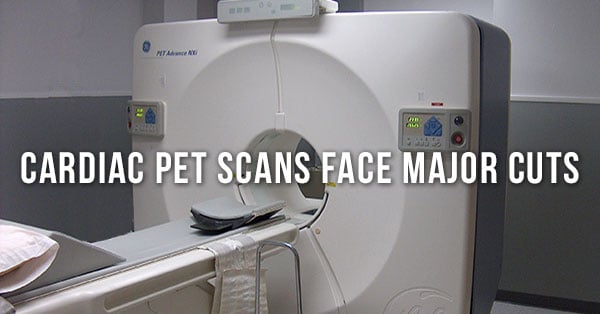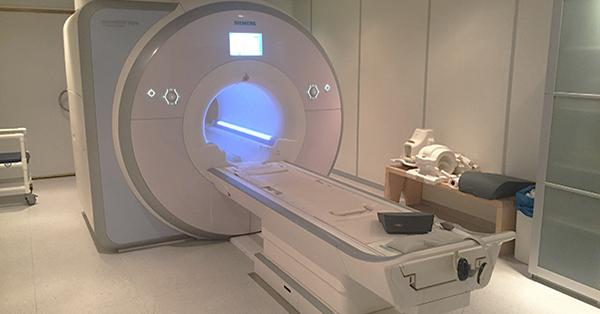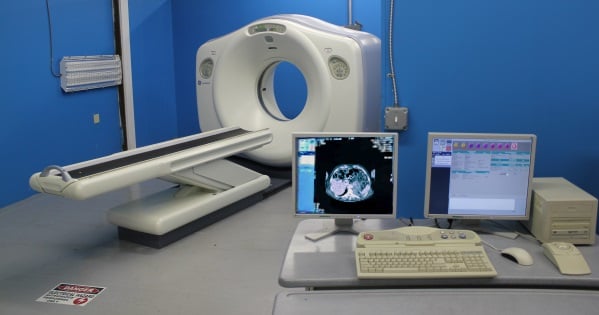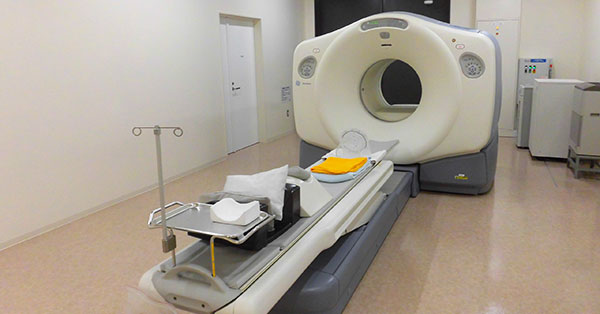
September 3, 2019 : 2 min read
Is Cardiac PET Scanning in Danger of Being Shut Down?
Recently, a proposal through the Centers for Medicare and Medicaid Services (CMS) recommended a change to the 2020 Medicare Physician Fee Schedule (MPFS) that would reduce reimbursement for cardiac PET scan procedures by 80%. While the proposed change doesn't prevent anyone from continuing to offer cardiac PET services, it does drop reimbursement to a level well below what's needed to maintain a viable cardiac imaging service, a move that will force many providers out of the market and eliminate access to service for the majority of patients.
This news raises several questions. What is CMS thinking with this proposal? What will patients do if the proposal is accepted? And what can be done about it? We'll answer these questions below to shed more light on the situation and what's to be done as CMS administrators make their deliberations.
What Is CMS Thinking with This Proposal?
The goal of this proposal, as with much of what CMS does, is to reduce the overall cost of healthcare in the United States. This is an admirable goal, but this proposal in particular is based on faulty assumptions and incomplete data sets that could cause it to have the opposite effect.
One assumption is that PET systems are used at a 90% rate, running almost constantly while the facility doors are open. The actual average is 45-50%. This doesn't factor in prep and quality control, and assumes a volume that is not practicable to keep doors open.
As for data sets, numerous startup and operating costs were not included. Maintenance, facility build-out, reading stations, shielding, and ancillary equipment like rubidium generators did not factor into the calculation of the proposed reimbursement rates. These items add up to nearly $50,000 per month in cost.
What Will Patients Do if the Proposal Is Accepted?
Acceptance of the proposal means a few things for patients:
More traveling: With many independent providers forced out of cardiac PET service, patients will either have to travel further to find a provider or submit to a cardiac catheterization procedure.
More invasive diagnosis: If a patient can't get to an MPI provider, there's a much higher likelihood that their screening will be done via catheterization, a procedure that requires general anesthesia and incision.
More expensive diagnosis: The most common form of cardiac PET imaging is myocardial perfusion imaging (MPI), a study used in the diagnosis of coronary artery disease. If the proposed reimbursement cuts are accepted MPI, with an average cost of $1,200 will, in many cases, be replaced by cardiac catheterization procedures averaging $9,500.
What Can I Do About This Proposal?
One of the best ways to influence against this proposal is to send a letter to Administrator Seema Verma at DHHS and your legislators. The link below will take you to a template you can use to draft a letter quickly and easily. The template contains three persuasive paragraph prompts. Pick one, to keep the letter short, and then challenge your colleagues to use one of the other two in their own letter. The more letters sent, the louder and clearer the message: Accepting an 80% cut to cardiac PET reimbursements will close practice doors and cut patients off from life-saving cardiac screening procedures.
Access the Cardiac PET Letter Template here
It's also important to visit www.savecardiacpet.com. This site exists to be "...a megaphone for healthcare providers to conveniently take action on this important issue and to share it with anyone they know." At the time of this writing users of the site have already sent over 3,700 messages advocating for cardiac PET providers and patients.
How will your practice be affected by this proposal? Please leave a comment and let us know.

Josh Nunez
Josh Nunez is the Director of Product Management at Block Imaging. Josh is energized by developing an understanding of each customer's unique imaging needs and overcoming the challenge of helping find them the perfect equipment match. When he is not providing PET/CT solutions he enjoys traveling, soccer, and spending time with his wife and five kids.





